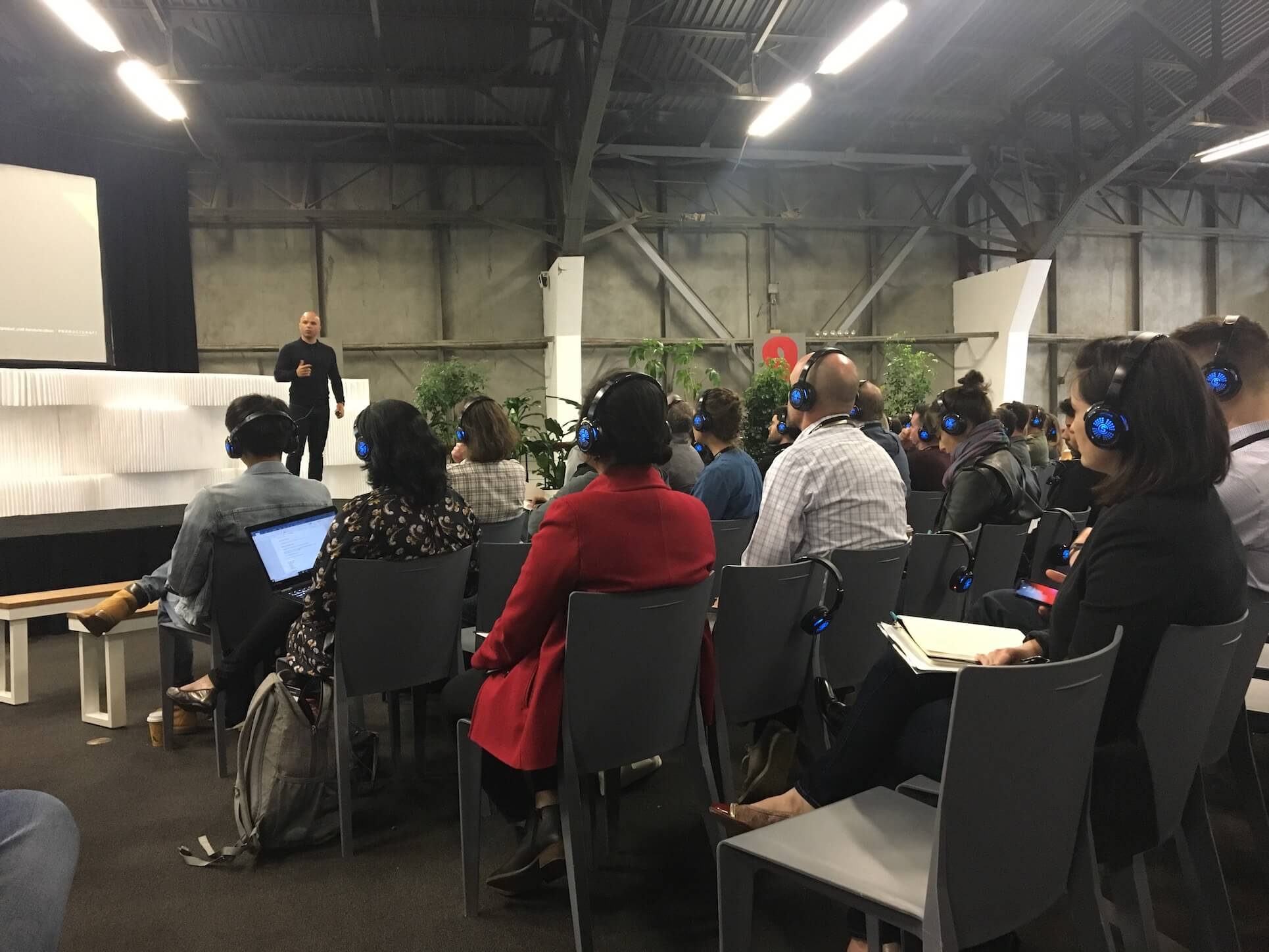Although only in his mid-30s, Sam Barnett has been lots of different people. He’s been the hotshot CEO of a London ad tech startup and a “reluctant” chief product officer at a global enterprise. He’s ping-ponged between urbane poseur and aspiring surfer. He’s thrived when bootstrapped yet struggled under the weight of millions in outside capital. He’s even dabbled in the arts. Humiliated by the quality of his private paintings, he made the unorthodox decision to paint enormous outdoor murals, where there would be no place to hide them. Somewhere in there he also managed to squeeze in a law degree.

Barnett talked a lot about his life when he spoke at last week’s sold out ProductCraft Conference but mentioned conspicuously little about his achievements, which themselves would merit another packed-room session. Instead, he tied together the people he has been, is, and will become, with a single string: reinvention. And he offered this advice to those fortunate enough to have scored a ticket: As the product leader, you have all the leverage to become whatever you want to become. But what’s required is to continually reinvent yourself.
With Great Power …
That leverage comes from a rate of change that daunts most business leaders. After Quantcast acquired Barnett’s startup, Struq, they put the 30-year-old in charge of product and loaded the weight of the organization onto his sturdy shoulders. “The future of the company is on you,” the CEO cautioned.
Why does the head of product carry a disproportionate amount of pressure? After all, doesn’t sales drive revenue? Isn’t marketing the caretaker of the brand? Sure. But as Barnett explained, the future of a business hinges on its ability to serve customers’ evolving needs, and because those needs change so quickly, meeting them requires constant reinvention. And reinvention, as it turns out, is the purview of product.
More than 20 years ago, Ben Horowitz made the famous claim that the product manager is the “CEO of the product.” Since then, countless product professionals have argued over whether or not this is true. According to Barnett, PMs are not the CEOs of the product, but product people do make great CEOs. This is why he believes the path to CEO runs through the door of product.
Preparing for the CEO Role
However, product leaders aren’t necessarily equipped with all of the skills required to lead the full organization, which is why personal reinvention must precede product reinvention. To that end, Barnett volunteered a handful of practical tips for product leaders who aspire to the corner office.
First, he advised them to learn to fundraise. Luckily, the product manager role offers internal opportunities to practice this skill. Consider your product strategy and roadmap. Have you identified an additional market for your product? Are you bringing a new product to market? If so, pitch your company’s CFO to secure funding for these endeavors.
Next, he challenged product leaders to learn to sell by cutting their teeth on early customers. Product managers must be familiar with and passionate about customer feedback, but sales is a different beast entirely. Also, he called out general operations as an area in which heads of product tend to have limited experience. For those looking to strengthen this muscle, he urged them to study OKR and 4DX principles. An understanding of GenOps along with real-world sales experience is the kind of impressive professional background that opens the door to the C-suite.
Finally, Barnett suggested that product pros understand team building by defining what excellence looks like in other departments. To do that, PMs should interview candidates throughout the organization and take part in hiring committees whenever possible. In addition, product managers must continue to nurture the health of their own team by developing complementary skill sets and making smart PM hires.
Embrace Professional Change
Developing this suite of skills requires constant personal reinvention in the very same way that adapting a product to meet the dynamic needs of buyers does. The former, Barnett argued, is a prerequisite for the latter. Nail it, and you’ve cleared a path to the CEO role; fall short and, hey, no pressure. After all, the only thing riding on your success is the future of the company.


